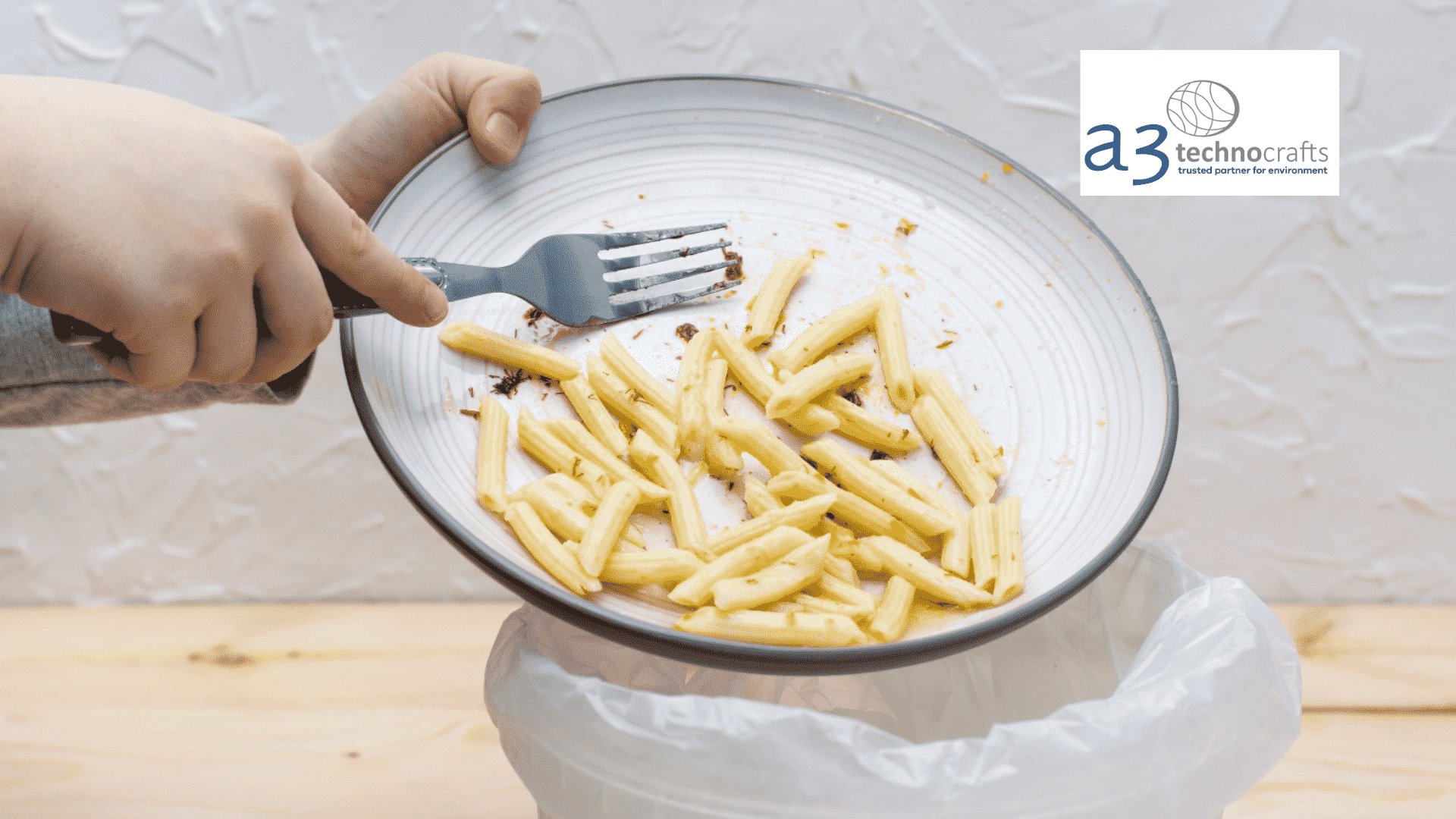Food waste is a critical issue that India faces, with a significant portion of the population suffering from hunger and malnutrition. In this blog, we will delve into the problem of food wastage in India, its adverse effects on the country, and the potential solution of food waste recycling. Furthermore, we will explore the role of A3 Technocrafts in assisting numerous restaurants in Food Waste Management.
Food Wastage in India: An Alarming Challenge
India, despite being a developing nation, struggles with a distressing amount of food waste each year. According to the Food and Agriculture Organization (FAO), approximately 40% of the food produced in India goes to waste. This staggering figure signifies not only an enormous economic loss but also a waste of valuable resources. Two of the major reasons food waste in India are as follows:
1. Inefficient Supply Chain:
India’s complex and inadequate supply chain infrastructure contributes significantly to food waste. Insufficient storage facilities, insufficient transportation systems and inadequate distribution networks lead to spoilage and loss during transit.
2. Consumer Behaviour:
Consumer habits, including excessive buying, improper storage and neglecting leftovers, play a substantial role in food waste. Furthermore, the prevalence of social gatherings and events adds to the magnitude of the problem.
Economic and Environmental Impacts of Food Waste:
Food wastage in India has significant economic impacts, resulting in the loss of valuable resources, increased production costs, and decreased profitability. Moreover, food waste contributes to greenhouse gas emissions, worsening climate change and depleting natural resources.
Offering a Solution: Food Waste Recycling
Food waste recycling offers a viable option to address the challenging issue of food wastage in India. This process involves converting food waste into valuable resources through various techniques, some of them are discussed below:
-Composting:
Composting entails the natural decomposition of food waste into nutrient-rich soil, which can be utilised as fertiliser for agriculture and horticulture. This process not only reduces waste but also enhances soil health and promotes sustainable farming practices.
-Anaerobic Digestion:
Anaerobic digestion employs microorganisms to break down organic waste, yielding biogas and biofertilizers. Biogas can be harnessed as a renewable energy source, while biofertilizers enrich the soil without harmful chemicals.
-Bioenergy Generation:
Food waste can be converted into bioenergy through methods like biomass conversion and biofuel production. This approach helps diminish dependence on fossil fuels and contributes to a cleaner and more sustainable energy sector.
-Animal Feed:
Feeding animals with food waste can help reduce food wastage by diverting unused or leftover food to livestock and pets, turning it into a valuable resource. Instead of being discarded, the food is repurposed to meet the nutritional needs of animals, contributing to a more sustainable and efficient use of resources.
Revolutionising Food Waste Recycling in Restaurants Chains, Food Courts and Cloud Kitchens.
A3 Technocrafts, as a prominent environmental technology company, plays a pivotal role in assisting restaurants and other food outlets in tackling the issue of food waste. Their innovative solutions empower restaurants and other food wastage generating places to efficiently manage and recycle their food waste.
Advanced Waste Management Systems:
A3 Technocrafts is at the forefront of revolutionising food waste recycling in various food establishments such as restaurant chains, food courts and cloud kitchens. With their range of Aerobic Composters, available in different capacities, they provide an innovative solution to convert collected food waste into nutrient-rich composts. These composts can then be utilised in farming or gardening, promoting sustainable practices and reducing the environmental impact of food waste. A3 Technocrafts’ aerobic composters play a vital role in creating a circular economy for food waste management.
In conclusion, food waste is a real issue in India, with 40% of produced food going to waste. Inefficient supply chains and consumer behaviour contribute to the problem. Food waste recycling offers a solution, including composting, anaerobic digestion, bioenergy generation, and animal feed.
A3 Technocrafts assists restaurants and other food outlets across India with their innovative Waste Management Systems by revolutionary Aerobic Composters, that are available in different capacities for different uses that convert food waste into useful composts that can be used in farming and gardening.
